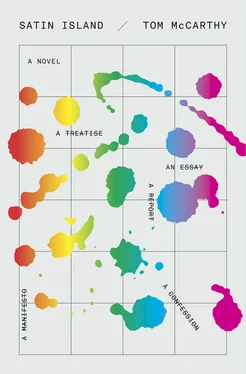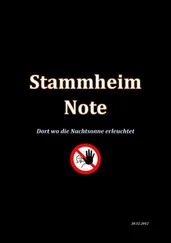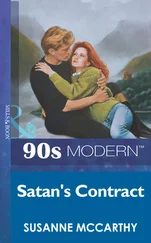13.17And you? I asked. Me? she asked back. Yes, I answered: what did you do? I walked in the direction he’d suggested, she said. I’d come out into some kind of suburb. It was a nice day: warm and sunny, languid. I remember there were flowers along the roadside, hanging over garden walls. I passed some kind of workshop, where a man was cutting something with a saw; then shops. There was this clothing shop. I went inside and bought some new clothes with my credit card: a shawl, a hat, a skirt. They weren’t particularly good clothes; just the kind of things that middle-aged, suburban women wear. And while I was in the shop, I tried to ask if there was a bus stop or metro station somewhere nearby; and the shop-woman told me ferrovia —railway — and, sure enough, there was a train station just a hundred yards away. One platform took you back to the centre of town; the other one led to Turin. So I took the next train from the second one. And on the train, on a route map in the corridor, I saw a little airport-icon by the stop just before Turin, with Internazionale written next to it; so that’s where I got off, and bought a ticket back to London — again, with my credit card. I remember thinking that it was ironic. What was? I asked. That it was my credit card that saved me after I’d been protesting against capitalism, she said. Oh, I see, I told her; I suppose it was. There was a plane leaving in about five hours’ time, she carried on. I bought a ticket, and sat there for the next five hours, hardly moving, waiting for the plane. And that, Madison concluded, laying her hands, palms-down, across the tabletop and looking at me with a frank but empty gaze, is how I came to be in Torino-Caselle Airport.
13.18By now, the staff had finished eating. Dusk was coming down, but they hadn’t switched on the restaurant’s lighting yet. Madison sat back in her chair. As her face retreated from me, it grew indistinct. The thing about Turin, she said after a pause, is that it’s where … I know, I said: it’s where the shroud is from. No, Madison told me; I wasn’t thinking of that. I was thinking of that other guy, who went mad. What other guy? I asked. The famous philosopher, she answered. Kierkegaard or Schopenhauer or someone; the one who said that God was dead. Oh, I told her: you mean Nietzsche. Maybe, she said. I’m pretty sure it was Nietzsche, I said. Whoever, she replied; it doesn’t matter: the point is — I found this out later — he saw a horse being beaten in a square in Turin, and he lost it. Can you imagine? After all the questions that he must have grappled with, the complex, universal stuff he’d thought and written about, it was a horse that did his mind in: a dumb horse. Its owner, driver, operator or whatever, she continued, was whipping it; and Kierkegaard or Nietzsche or whoever saw this act of cruelty, and it wacked him out, sent him insane. He never wrote another book. For the first time in the conversation, she looked genuinely disturbed. Of all things, she said: a horse … Her voice had gone all faint. So had her face: darkness was gathering around it, smudging its parameters more and more with each passing minute. We sat in silence for a while, listening to the muffled noise of traffic and the low-level bustle of the staff as they readied the place for the evening sitting.
14.1The following week, I flew off to New York, and this symposium. I didn’t have to give a presentation or a lecture or anything like that — just sit on a bunch of panel discussions. To my surprise, I found myself (in stark contrast to Frankfurt) being fêted at every turn. Peyman had clearly put the word out. Despite saying almost nothing in any of these conversations, I was accorded almost sycophantic reverence, simply for being (as it was stated time and again) one of the Koob-Sassen Project’s “architects” or “engineers.” Any protest I made about the grotesque exaggeration contained in this label, any confession of my utterly diminutive contribution to the whole thing, of how my little subterranean scratching-around had formed a tiny piece of a huge jigsaw, and so on — all these were written down to some notion of quaint British modesty, and had the opposite effect to that intended, boosting my presumed rank and prestige even more. The trade press were all over the event; after each panel, there’d be short interviews, at which off-the-cuff utterances, none of which I can remember, were extracted from me; then I and the other panelists would be ushered to limousines and whisked off to meals in restaurants so expensive that they didn’t print the prices on the menus; not that we were paying.
14.2On the third day of this, several hours before I was due to fly back out of JFK, I managed to extricate myself from this circus. I thus found myself with a fair stretch of time, free time, and no desire to fill it up with anything. I rode the subway for an hour or so, getting off here and there, walking a few blocks, then burrowing back down into the next lettered stairwell that I came across. I followed no route in particular — just crossed and crisscrossed, switched back, re-traversed the same stretches of track; but all the same, I found myself being drawn, like some weak dowser’s rod, lower and lower downtown. Eventually, abandoning the illusion that this descent was taking place by chance rather than design, I took the decision to do what I’d already been doing half-intentionally: that is, to travel right down to Manhattan’s very base, and to the ferry terminal perched on its southernmost tip.
14.3South Ferry is the subway station serving the terminal itself; but for some reason it was closed, so I got off at Rector Street instead. A sign at one end of the platform directed passengers towards the 9/11 Memorial; another, at the far end, read Ferries to Staten Island . It was odd to see those last two words printed out, in public, big and bold and official, after having stared at them, or their variants, in private for so long — as though I were now physically moving through one of my own dossiers: past its coordinates, along its arbitrary channels of association. Beyond the sign, a narrow staircase carried me up to a street bathed in late-winter sunlight. Old buildings bordered this. One of them had its name emblazoned above its portico: New York State Department of Motor Vehicles. Others, untitled, had the look of civic buildings too: tax offices, perhaps, or public records depots. Above these buildings, dwarfing them, the half-completed Freedom Tower’s crane-studded skeleton rose up. The thrum of sightseeing helicopters hung about the air; behind the Motor Vehicle building I could see one taking off, its glass nose sniffing the ground to which it glided parallel for a few metres before peeling away laterally skywards; another hovered, its head angled more aloofly upwards as it waited to land. The intermittent beep-beep-beep of reversing buses broke up the chopper blades’ deep, gut-vibrating frequencies, or at least punctuated them. Buses were everywhere: MTA buses turning around or idling at their downtown end-point; tour buses disgorging tourists or awaiting new ones. Men in yellow jackets hawked tickets for these buses, for the helicopters and for boats: aerial and ground tours of Manhattan, cruises to Ellis and Liberty Islands. No one, of course, was selling tours to Staten Island, since the crossing was free — and, even if it hadn’t been, no tourist would have wanted to go there.
14.4I wanted to go there. Why? I don’t know. Why does anyone do anything? I was, as I’d anticipated I would be, depressed. I’d been this way for months. Despite the Project’s evident, or apparent, success; despite my own “pivotal” role in the Company’s contribution to this monumental undertaking, all the plaudits it was winning me (there’d doubtless be a raise, an elevated status in the Company, perhaps even a high-up, or at least above-ground, office — how I’d miss the sound of ventilation!) — none of this meant anything to me. Nothing meant anything to me. Present-Tense Anthropology™? The Parachutist Mystery? Trashed, pulverised, dissolved back into the whimsy-froth from which they’d bubbled up. The Torino-Caselle Enigma? Madison’s story was, like Lévi-Strauss’s tribe, just fucking weird. What dot-codex could be salvaged from that? And yet the rich and vivid island-dream had stayed with me, cached itself somewhere deep inside, and was now growing, pulsing as it rose back to the surface, radiating with a prospect, with an overwhelming promise, of significance. Something, I told myself with an assurance that I can’t explain, nor could I then, but which all the same, perhaps for that very reason, seemed completely watertight — something would happen if I went to Staten Island. I didn’t know what; but something would. And something would make sense — if not the whole caboodle, at least something . Something is not nothing, even if it isn’t everything. Like a shipwrecked sailor clinging to a piece of driftwood, or a gambler down to his last chip reaching for the dice to take one final roll, I’d gravitated down here, to the bottom of Manhattan, armed with nothing more than an idea of getting on this ferry. Would I come back on it again? Perhaps; perhaps not. Anything seemed possible.
Читать дальше












